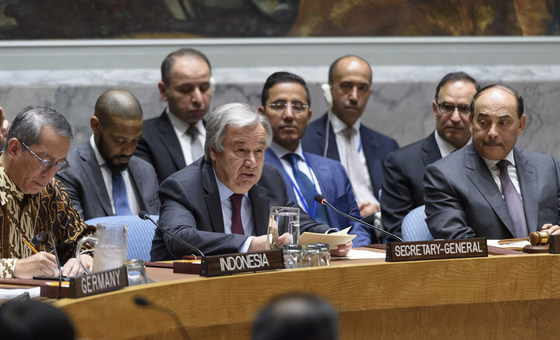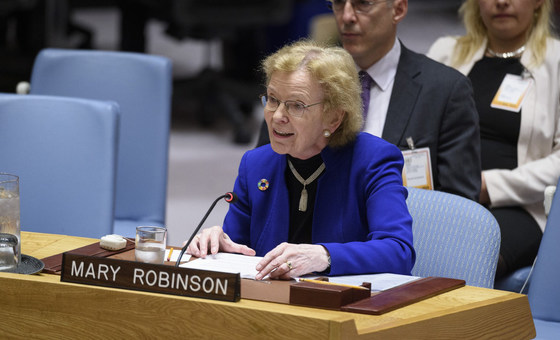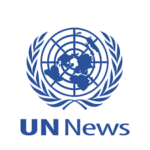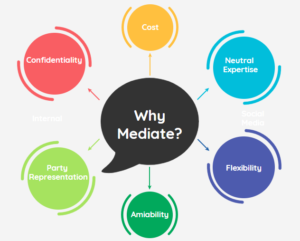Conflict Prevention, Mediation: Among ‘Most Important Tools’ to Reduce Human Suffering, Guterres Tells Security Council
CONFLICT RESOLUTION - MEDIATION, UNITED NATIONS, 17 Jun 2019
UN News – TRANSCEND Media Service
12 Jun 2019 – Conflict prevention and mediation are two of “the most important tools at our disposal to reduce human suffering” UN Secretary-General Antonio Guterres told the Security Council today.
“When we act early, and are united, we can successfully prevent crises from escalating, saving lives and reducing suffering – fulfilling the most fundamental mandate of the United Nations”, he continued.
To further these aims, Mr. Guterres told the chamber that the UN was working with various parties to conflict, together with partners for peace, in regions and countries across the world.
He noted some “encouraging signs”, such as successful constitutional transfers of power in Mali and Madagascar; the rapprochement between Ethiopia and Eritrea; the revitalized agreement in South Sudan; and, after decades of dispute, “the designation of the Republic of North Macedonia to be internationally recognized”.
The UN also continues to push back against serious challenges posed by complex conflicts.
While the Stockholm Agreement in Yemen between Government and Houthi opposition was “an important step”, the UN chief noted that “that must now move to a negotiated settlement”.
In the Central African Republic, the UN is helping to implement the African Union-mediated peace agreement; conducting robust operations to ensure armed groups’ adherence and facilitating local peace accords. And in Burkina Faso, it is working with a wide range of national actors to strengthen infrastructures for peace in response to rising sectarian violence.

Secretary-General António Guterres addresses the UN Security Council during a meeting on conflict prevention and mediation. (12 June 2019)
UN Photo/Loey Felipe
Obstacles abound
Despite these efforts, enormous obstacles remain, including wars that continue to rage as “external actors dither or even fuel the violence” and as non-State armed groups and militias fragment, causing even greater chaos.
Moreover a resurgence of populism and policies contribute to resentment, marginalization and extremism, even in societies that are not at war, rolling back human rights and the progress that has been made over recent decades on gender and inclusion, said the UN chief. It’s civilians “who pay the price”, he underscored.
Solutions prevail
Mr. Guterres elaborated on a broad range of tools set out in Chapter VI of the UN Charter and urged government to “make full use” of them.
“Sustainable Development is an end in itself, but it is also one of the most effective tools we have to prevent conflict”, Mr. Guterres stressed. “The 2030 Agenda for Sustainable Development is our blueprint to create resilient, stable societies and to address the root causes of violence of all kinds”.
He spelled out that his means “a strong focus on inclusivity, with a special emphasis on mainstreaming women’s rights and gender equality across our prevention and mediation work”.
While progress on women’s participation in formal peace processes is “still lagging”, the UN chief said, “we will continue to use creative strategies to advance women’s participation, building on previous efforts including the Syrian Women’s Advisory Board and the Yemeni Women’s Technical Advisory Group”.
“Prevention and mediation will not work without broader political efforts.” – UN chief
Noting that some 600 million youth in fragile and conflict-affected states have a vital contribution to make to mediation and peacebuilding processes, he drew attention to the first International Symposium for Youth Participation in Peace Processes earlier this year as “an important step forward”.
“Independent actors and non-governmental organizations, including the Elders, are a critical complementary element to our efforts”, added the UN chief.
“But let’s not fool ourselves,” he continued. “Prevention and mediation will not work without broader political efforts”.
The Secretary-General urged the Council and all Member States, “to strive for greater unity so that prevention and mediation efforts are as effective as possible” calling it “the only way to meet our responsibilities to the people we serve.”
Spirit of inclusive dialogue
Speaking as Chair of The Elders, a group of independent global leaders founded by Nelson Mandela, to promote good governance and ethical leadership, former Irish President Mary Robinson urged the Council to approach the topics in the “spirit of inclusive dialogue and willingness to work for compromise and consensus in the interests of peace”.

Mary Robinson, former Irish president and a member of The Elders, addresses a UN Security Council meeting on conflict prevention and mediation. (12 June 2019)
UN Photo/Loey Felipe
She painted a picture of fear, conflict and despair “from the streets of Khartoum to the townships of Harare; the bombed-out hospitals of Idlib to the ruined schools of Yemen; and the slums of Gaza to the Rohingya refugee camps of Cox’s Bazaar in Bangladesh”.
“Over the decades the Council – and, particularly, its five permanent members – has failed to live up to its responsibilities and has favored realpolitik or short-term power stratagems rather than meeting the solemn commitments outlined in the UN Charter, she spelled out.
“Nowhere has this been more apparent than in the repeated use of the veto by certain permanent members on resolutions aimed to prevent mass atrocities, including the use of chemical weapons on civilians” she stressed, adding that “the international community must not wait until a major tragedy”.
Council’s strong voice needed ‘more than ever’ – former UN chief
When the Security Council can cooperate and speak with a strong common voice, “its decisions can have a decisive impact, former UN Secretary-General Ban Ki-moon told the Chamber.
"When the Council can cooperate & speak with a strong common voice, its decisions can have a decisive impact." –Elders' Deputy Chair Ban Ki-moon, addressing the UN Security Council. #UNSC pic.twitter.com/PqLVfizgxF
— The Elders (@TheElders) June 12, 2019
“This strong, common voice is needed more than ever at this current time, when the deceptive allure of populism and isolationism is growing across all continents, from North and South America to Africa, Asia and Europe” he stated.
Faced with complex, multi-faceted and gravely serious challenges, Mr. Ban said it was “profoundly irresponsible”, that politicians “collude in or deliberately stoke illusions” for their own gain, in full knowledge that no one country, however powerful, will be able to meet the global challenges on its own.
“The working methods of the Council could be improved” he maintained, advising members to “agree on a joint common position to address conflicts in their early stages”, including through timely and strong statements.
Turning to the nuclear threat, Mr. Ban that said the “risks of nuclear conflict are higher than they have been in several decades”.
There is also the risk, he said, that “the whole architecture of arms control and nuclear non-proliferation that was built up during the decades of superpower confrontation may collapse, through a combination of neglect, hubris and ill-founded threat analysis…The consequences of failure do not bear contemplation”, he concluded.
_______________________________________________
Related Stories:
- Rise in violent conflict shows prevention ‘more necessary than ever’: UN chief
- As conflicts become more complex, ‘mediation is no longer an option; it is a necessity’, UN chief tells Security Council
- Secretary-General’s remarks at Security Council Meeting on Conflict Prevention and Mediation
- From violence to dialogue: as land conflicts intensify, UN boosts efforts to resolve disputes through mediation
Tags: Antonio Guterres, Conflict, Conflict Resolution, Conflict Transformation, International Relations, Nonviolence, Peace, Solutions, United Nations
DISCLAIMER: The statements, views and opinions expressed in pieces republished here are solely those of the authors and do not necessarily represent those of TMS. In accordance with title 17 U.S.C. section 107, this material is distributed without profit to those who have expressed a prior interest in receiving the included information for research and educational purposes. TMS has no affiliation whatsoever with the originator of this article nor is TMS endorsed or sponsored by the originator. “GO TO ORIGINAL” links are provided as a convenience to our readers and allow for verification of authenticity. However, as originating pages are often updated by their originating host sites, the versions posted may not match the versions our readers view when clicking the “GO TO ORIGINAL” links. This site contains copyrighted material the use of which has not always been specifically authorized by the copyright owner. We are making such material available in our efforts to advance understanding of environmental, political, human rights, economic, democracy, scientific, and social justice issues, etc. We believe this constitutes a ‘fair use’ of any such copyrighted material as provided for in section 107 of the US Copyright Law. In accordance with Title 17 U.S.C. Section 107, the material on this site is distributed without profit to those who have expressed a prior interest in receiving the included information for research and educational purposes. For more information go to: http://www.law.cornell.edu/uscode/17/107.shtml. If you wish to use copyrighted material from this site for purposes of your own that go beyond ‘fair use’, you must obtain permission from the copyright owner.
3 Responses to “Conflict Prevention, Mediation: Among ‘Most Important Tools’ to Reduce Human Suffering, Guterres Tells Security Council”
Read more
Click here to go to the current weekly digest or pick another article:
CONFLICT RESOLUTION - MEDIATION:
- Negotiating a Lasting Peace in Ukraine
- Israeli Government Approves Hostage/Ceasefire Deal, to Take Effect Sun 19 Jan
- The Gaza Ceasefire Agreement: Key Points and Steps Toward Reconstruction
UNITED NATIONS:


This article explains quite clearly why the ‘UN’ I call United Necrologers or the creators of death.
Mary Robinson increased the abuse of Human Rights, Ban Ki-Moon increase abuse of everything and Antonio Guterrez increased three-fold (or more) the number of refugees and amount of human suffering, through his 10 years as High Commissioner for Refugees., the big ‘money-making’ UN Commission.
I despair when I read MR Guterres address to the Insecurity Council.
If the United Nations met the definition of honorable and operating with integrity, the immensely scandalous and criminal 9/11 false flag would have been exposed and the criminal rats who conceived, planned and carried out the mass murder (and subsequent 17 years of fraudulent “war on (of) terror) in prison for life or put to death. The so-called “Elders” surely know that 9/11 was a false flag, – even a 7-year boy or girl will watch Building 7’s collapse and say “controlled demolition” – but apparently “The Elders” will be taking their silent complicity with them to the grave. What a crying, absolutely disappointing shame to see the near unanimous level of cowardice.
Support The Lawyers’ Committee for 9/11 Inquiry. Demand officials at the Southern District of New York start the (mandatory!) Special 9/11 Grand Jury process – IMMEDIATELY!!!
Dear Jerry, I shall wholeheartedly support the Lawyers Committee the day they use the Law to create Peace in the world. All wars are illegal, you could very easily prove this truth. But your Committee does nothing to prevent this illegality.
Do you realize that, if you had been the President of the US in 2001, with the obligation to create trading for your military, construction, security and oil industries, you would have done the same?
By accepting militarism, you and the entire Lawyers Committee for 9/11 Inquiry are creating Injustice and Illegality. You are promoting, encouraging death, bereavement, poverty, homelessness, displacement, hunger, illiteracy, illness, etc.
To make the world accept 9/11 was an inside job, you should expose all ‘inside jobs’. Franklin Delano Roosevelt said it clearly enough “no war in the world happens by accident”. Especially with all wars, so well documented, of the 19th, 20th centuries, and the 19 years so far lived of our century, you can easily demonstrate the truth uttered by President Roosevelt. Remember that US, UK, NATO could have never invaded Iraq without Saddam Hussein’s Government and Armed Forces approval.